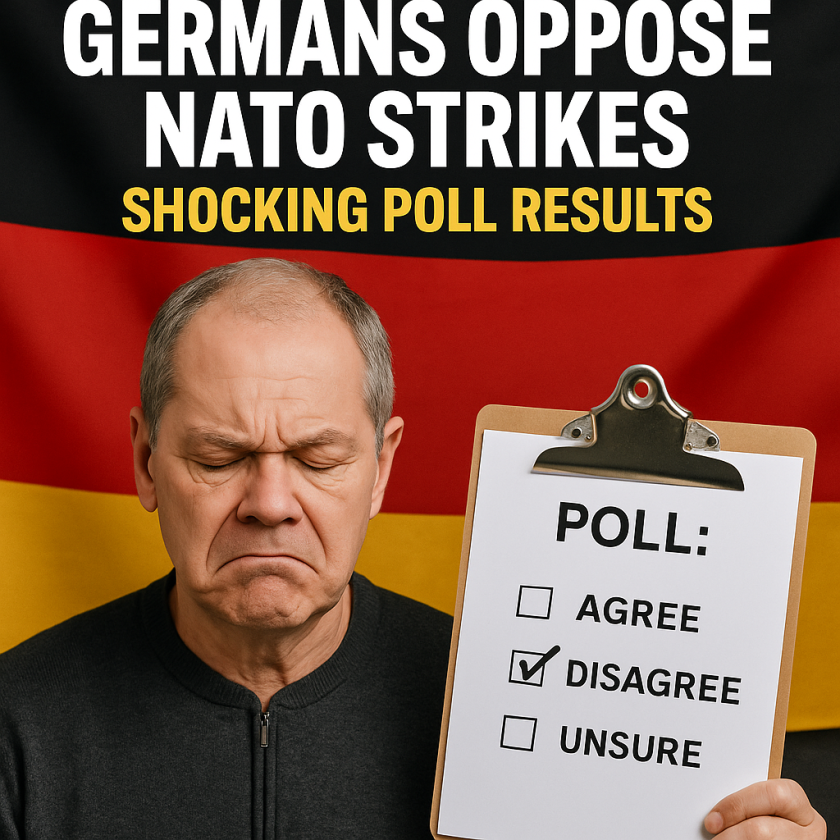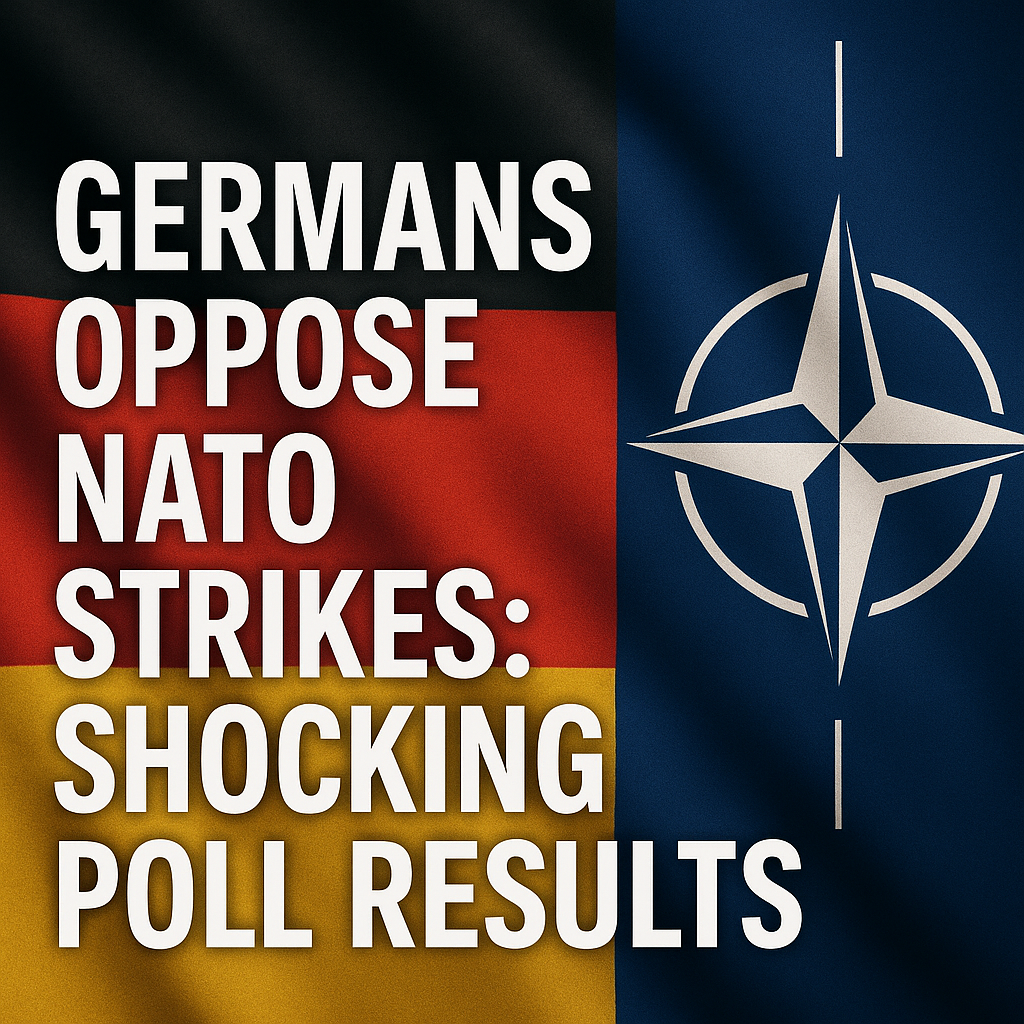Germans Oppose NATO Strikes: Shocking Poll Results
Germans Oppose NATO Strikes: Shocking Poll Results
The recent poll results revealing that a significant portion of the German populace opposes NATO strikes against Russia have sent shockwaves throughout the political landscape. These findings challenge long-held assumptions about Germany’s support for NATO and its role in international military coalitions.
Understanding the Poll Results

A report by RT highlights that nearly 60% of Germans are against military intervention by NATO in the ongoing tensions with Russia. This sentiment seems to reflect a growing skepticism about prolonged military engagements, particularly in Eastern Europe.
Factors Influencing Public Opinion
Several factors contribute to this shift in public sentiment. Firstly, the historical context remains crucial. Germany’s post-World War II identity has been heavily oriented towards diplomacy and peaceful resolutions rather than military action. Many citizens remember the extensive debates over Germany’s military involvement in conflicts like Afghanistan and Libya, leading to concerns about the ramifications of expanded military actions.
Moreover, economic considerations cannot be overlooked. As the cost of living continues to rise and energy prices fluctuate, many Germans appear apprehensive about the potential economic fallout that could accompany NATO’s aggressive stance toward Russia. A common sentiment echoed by citizens is, “Why should we sacrifice our security and financial well-being for a conflict that seems distant from our day-to-day lives?”
Diverse Political Reactions
The political landscape in Germany is also reflective of these poll results. Figures from various parties are responding in ways that illustrate a divide in how military actions are perceived.
– Left and Green Parties: Often aligned with pacifist ideals, representatives from these parties have voiced strong opposition to military strikes, arguing that dialogue should take precedence over force.
– Conservative CDU/CSU: While more supportive of NATO initiatives, leaders from this faction are sensing the need to balance their military support with public opinions. Some party members have begun to advocate for a more nuanced approach, pressing for diplomatic negotiations rather than straightforward military escalations.
– Alternative for Germany (AfD): The far-right party has seized upon the sentiments of the polls to bolster their arguments against any collaboration with NATO, positioning themselves as voices for peace and stability.
Public Sentiment Towards NATO’s Role
Interestingly, the poll results also reveal that while many Germans oppose military strikes, they still acknowledge NATO’s importance. Fear of Russian aggression looms large, yet the distrust in military intervention as a solution is palpable. In a society that values its peace-oriented stance, many citizens are wrestling with the complexity of supporting NATO while rejecting military action.
Concerns about the prospect of escalating tensions further fuel this debate. Some Germans worry about the unintended consequences of military interventions, which could lead to broader conflicts, echoing historical precedents that they would rather not repeat.
The Path Forward: A Need for Dialogue
The discordance between public opinion and governmental policy presents a challenge for German leadership. Given the vast political implications of the poll results, a more balanced approach might be necessary.
– Engagement Over Escalation: Many advocate for intensified diplomatic channels with NATO and Russian representatives. This could foster a climate of open dialogue and negotiation, aiming for peace instead of conflict.
– Educational Initiatives: Enhanced public discourse around foreign policy choices may also play a vital role in bridging the divide between governmental actions and public sentiment. Initiatives aimed at educating citizens about global affairs, security, and diplomacy could yield a more informed electorate capable of nuanced discussions.
In conclusion, the recent polling that shows a substantial portion of Germans opposing NATO strikes against Russia reflects a deep-seated desire for peace and skepticism regarding military intervention. As public opinion continues to evolve, it is essential for policymakers to listen to the concerns of their constituents and navigate these complex waters with sensitivity and foresight. The focus must shift toward reducing tensions through dialogue, ensuring that the citizens’ voices resonate in the corridors of power.




































